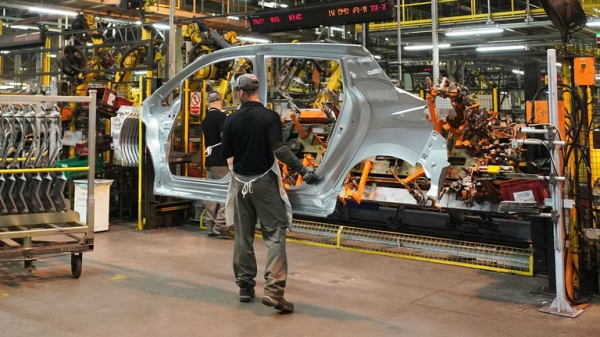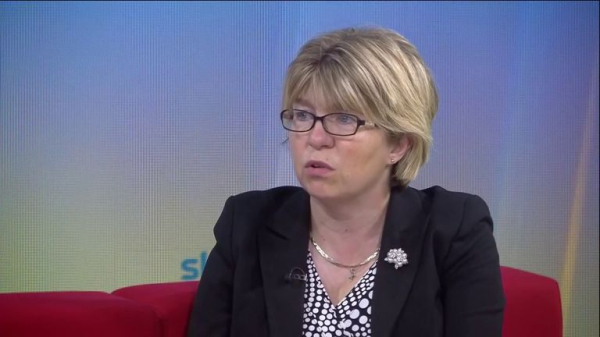Factories warn of damaging ‘potent cocktail’ as output slows

A “potent cocktail” of pressures has forced the trade body for manufacturers to cut its outlook for output this year amid a slump in new orders and hiring.
Make UK’s quarterly survey said a slowdown in production since the early summer had forced it to trim its annual forecast to a fall of 0.5%.
That was down from its previous expectations, in June, for a 0.3% drop during 2023.
The body saw growth of just 0.5% for 2024 and said the finding was within its margin for no growth at all.
Verity Davidge, policy director at Make UK, said: “Manufacturers are seeing a very sharp slowdown in activity as the potent cocktail of rising interest rates, cost of living and slowing overseas markets bites hard.”
At the same time, more than half of the 300 respondents said they have withheld investment in the last two years as a result of the uncertain business environment.
A similar number said they would have invested more in the last five years or, in the future, if there was a formal industrial strategy in place.

Three out of four companies said they believed that policy incentives elsewhere, such as in the EU and US, were making UK investments harder to justify.
The government, last week, announced financial support for both the production of the Mini in Oxford and steel at Port Talbot in South Wales as competition for jobs mounts in the tough global economy.

Germany – Europe’s largest, and a manufacturing-led economy – is already in recession.
Data has suggested a growing risk of the UK following, with total output in July down by 0.5% on the month before.
However, much of that decline was blamed on the impact of rain and strike action and growth remains in positive territory on a rolling three month basis.
There are two big threats to that scenario in play.
One is the pace of price rises in the economy and the other is the medicine designed to bring inflation under control.
A Reuters poll of economists expects that the rate of inflation ticked up in August to 7.1% from an annual rate of 6.8% the previous month.
That predicted increase is largely explained by rising oil global prices.
While another interest rate rise is expected from the Bank of England the following day, raising borrowing costs for a 15th successive meeting, policymakers may see the rise in oil prices as a further risk to its roadmap for easing inflation.
That is despite the Bank’s governor signalling earlier this month that the cycle of interest rate increases was nearing its end.
Rising oil prices also pose a risk to the government’s target of halving inflation this year.
Rising oil costs mean higher prices for things like road fuel, plane tickets and manufactured goods.
